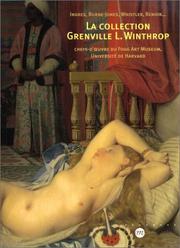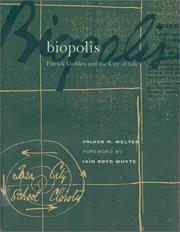| Listing 1 - 3 of 3 |
Sort by
|

ISBN: 2711846202 Year: 2003 Publisher: Paris Lyon Réunion des Musées nationaux Musée des Beaux-Arts de Lyon
Abstract | Keywords | Export | Availability | Bookmark
 Loading...
Loading...Choose an application
- Reference Manager
- EndNote
- RefWorks (Direct export to RefWorks)
Art --- Winthrop, Grenville L. --- Fogg Museum [Cambridge, Mass.] --- Fogg Art Museum (Cambridge-Massachusetts) --- verzameling Grenville L. Winthrop (Cambridge-Massachusetts) --- 19de eeuw --- Frankrijk --- Duitsland --- Groot-Brittannië --- Verenigde Staten --- verzameling Grenville L Winthrop (Cambridge-Massachusetts) --- 19de eeuw. --- Frankrijk. --- Duitsland. --- Groot-Brittannië. --- Verenigde Staten.
Book
ISSN: 1279774X ISBN: 2717722599 9782717722598 Year: 2003 Volume: *7
Abstract | Keywords | Export | Availability | Bookmark
 Loading...
Loading...Choose an application
- Reference Manager
- EndNote
- RefWorks (Direct export to RefWorks)
Divination --- Cosmology, Chinese --- Dunhuang manuscripts --- Medieval Chinese divination and cosmology - 9th-10th centuries manuscripts rolls --- 091 <44 PARIS> --- 091 <41 LONDON> --- Handschriftenkunde. Handschriftencatalogi--Frankrijk--PARIS --- Handschriftenkunde. Handschriftencatalogi--Verenigd Koninkrijk van Groot-Brittannië en Noord-Ierland--LONDON --- 091 <41 LONDON> Handschriftenkunde. Handschriftencatalogi--Verenigd Koninkrijk van Groot-Brittannië en Noord-Ierland--LONDON --- 091 <44 PARIS> Handschriftenkunde. Handschriftencatalogi--Frankrijk--PARIS --- Chinese cosmology --- Dunhuang manuscripts. --- Tun-huang manuscripts --- Divination - China

ISBN: 0262232111 0262285983 1423725271 9780262285988 9781423725275 Year: 2003 Publisher: Cambridge, Mass. London MIT
Abstract | Keywords | Export | Availability | Bookmark
 Loading...
Loading...Choose an application
- Reference Manager
- EndNote
- RefWorks (Direct export to RefWorks)
"The Scottish urbanist and biologist Patrick Geddes (1854-1932) is perhaps best known for introducing the concept of the "region" to architecture and planning. At the turn of the twentieth century, he was one of the strongest advocates of town planning and an active participant in debates about the future of the city. He was arguably the first planner to recognize the importance of historic city centers, and his renewal work in Edinburgh's Old Town is visible and impressive to this day." "Geddes's famous analytical triad - place, work, and folk, corresponding to the geographical, historical, and spiritual aspects of the city - provides the basic structure of this examination of his urban theory. Volker Welter examines Geddes's ideas in the light of nineteenth-century biology - in which Geddes received his academic training - showing Geddes's use of biological concepts to be far more sophisticated than popular images of the city as an organic entity. His urbanism was informed by his lifelong interest in the theory of evolution and in ecology, cutting-edge areas in the late nineteenth century. Balancing Geddes's biological thought is his interest in the historical Greek concept of the polis, usually translated as city-state but implying a view of the city as a cultural and spiritual phenomenon." "Although Geddes's work was far-ranging, the city provided the unifying focus of nearly all of his theoretical and practical work. Throughout the book, Welter relates Geddes's theory of the city to contemporary European debates about architecture and urbanism."--Jacket.
City planners --- City planning --- Urbanistes --- Urbanisme --- Biography. --- History. --- Philosophy. --- Biographie --- Histoire --- Philosophie --- Geddes, Patrick, --- -City planning --- -Patrick Geddes 1854-1931 (° Perth, Schotland) --- Architectuur ; stedenbouw ; 1870-1932 ; Patrick Geddes --- Stadsplanning ; Groot-Brittannië ; theorie --- Ruimtelijke ordening ; architectuur ; regionale ontwikkeling --- De stad als biologisch concept --- 72.07 --- 72(410) --- Cities and towns --- Civic planning --- Land use, Urban --- Model cities --- Redevelopment, Urban --- Slum clearance --- Town planning --- Urban design --- Urban development --- Urban planning --- Land use --- Planning --- Art, Municipal --- Civic improvement --- Regional planning --- Urban policy --- Urban renewal --- Town planners --- Urbanists --- Architects --- Planners --- History --- Philosophy --- Architecten. Stedenbouwkundigen A - Z --- Architectuur ; Groot-Brittannië --- Government policy --- Management --- Geddes, Patrick Sir --- Patrick Geddes 1854-1931 (° Perth, Schotland) --- Geddes, P. --- Sociology & Social History --- Social Sciences --- Communities - Urban Groups
| Listing 1 - 3 of 3 |
Sort by
|

 Search
Search Feedback
Feedback About
About Help
Help News
News